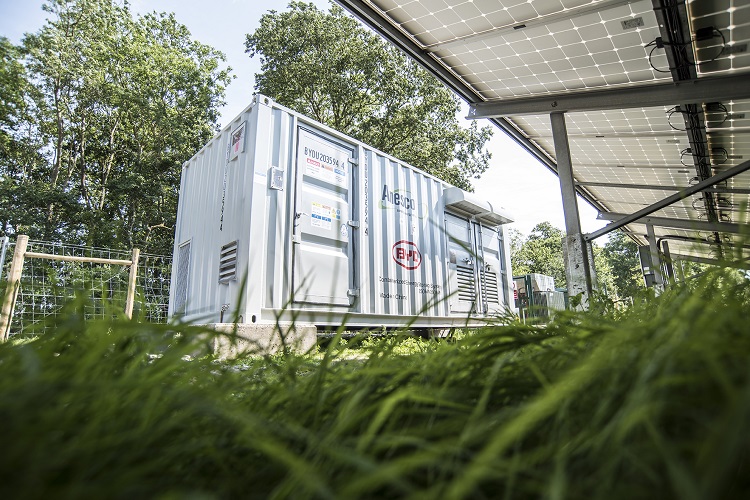Global research institute McKinsey & Company has analyzed current energy storage prices and concluded that commercial customers are already feeling the economic benefits of cheaper batteries and recent price falls in lithium-ion technology.
With battery-pack costs now down to less than $230/kWh – compared to around $1,000/kWh as recently as 2010 – storage uptake is on the rise across Europe, Asia and the U.S. This growth is being facilitated by a greater uptick in electric vehicle (EV) adoption, with major players now scaling-up their lithium-ion manufacturing capacity in order to meet demand.
The immediate effect of this has been a downward pressure on prices, and storage has now begun to play a more central role in energy markets, the McKinsey report said, moving from niche uses such as grid balancing to becoming a viable alternative to conventional power generators, and a stable support act for renewable energy.
Furthermore, as more and more PV markets begin to trim and pare back their solar incentives, consumers – particularly commercial-scale PV owners – are exploring with greater gusto the idea of solar+storage to allow them to consume power on demand and export excess electricity to the grid.
And the key driver behind this new trend is price. McKinsey believes that in a matter of years households and business will soon be able to pair solar+storage with a small electrical generator and defect fully from grids.
Aside from giving customers more energy independence, the impact of cheaper storage costs could be profound for utilities, the report found.
Challenges of cost
Cheap battery storage will pose an increasing challenge for big utilities behind-the-meter, whereas those that operate in-front-of-the-meter (such as large-scale installation used by utilities for a variety of on-grid applications) will see opportunities for flexible deployment and cost reduction increase, said the report.
“Cheap(er) storage will be even more disruptive to ‘business as usual’ because different combinations of storage and solar will likely be able to arbitrage any variable rate design that utilities create,” the report adds, pointing to how net metering and FITs have served as powerful incentives to install solar panels over the past few years.
The success of these schemes forced utilities to then design rates that reduced the incentive to install solar. By moving to time-of-use pricing structures and implementing demand charges, utilities were able to wrest back some financial control against solar customers. The growth of storage, however, moves the goalposts once more and allows customers to shift solar generation away from exports to cover more of their power needs, meaning that many continue to reap almost full retail value for their solar generation.
One outcome seen in advanced storage markets such as Hawaii and Australia is solar+storage customers managing their energy needs for about 80-90% of the time, but staying connected to the grid in order to have that 24/7 access. This trend is likely to be seen soon in U.S. states of Arizona, California, Nevada and New York.
“Many utility executives and industry experts thought the risk of load loss was overblown in the context of solar,” said the report. “The combination of solar plus storage, however, makes it much more difficult to defend against.”
Faced with these market forces, McKinsey’s researchers recommend that utilities radically change their grid-system planning approaches by investing in more intelligent software and analytics to ensure the highest priority needs on the grid are addressed more efficiently.
This content is protected by copyright and may not be reused. If you want to cooperate with us and would like to reuse some of our content, please contact: editors@pv-magazine.com.



2 comments
By submitting this form you agree to pv magazine using your data for the purposes of publishing your comment.
Your personal data will only be disclosed or otherwise transmitted to third parties for the purposes of spam filtering or if this is necessary for technical maintenance of the website. Any other transfer to third parties will not take place unless this is justified on the basis of applicable data protection regulations or if pv magazine is legally obliged to do so.
You may revoke this consent at any time with effect for the future, in which case your personal data will be deleted immediately. Otherwise, your data will be deleted if pv magazine has processed your request or the purpose of data storage is fulfilled.
Further information on data privacy can be found in our Data Protection Policy.